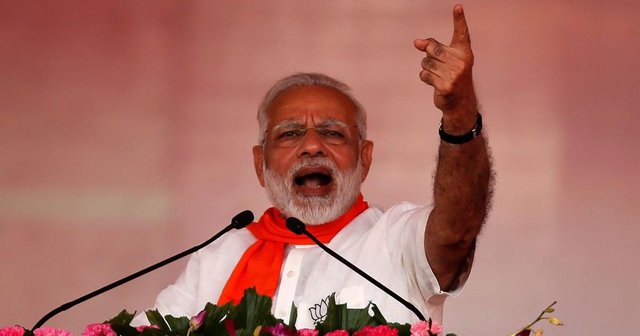When the opposition parties, led by the Telugu Desam Party, tabled a no-confidence motion against the Narendra Modi government in the budget session, it was not taken up by Lok Sabha Speaker Sumitra Mahajan on the plea that there was disorder in the House. It was widely believed that the government did not want a debate on a no-confidence motion as it did not wish to face a barrage of criticism on its failures from the combined opposition although it had the numerical strength to defeat the motion.

It was also said that the Bharatiya Janata Party was avoiding this discussion as the crucial Karnataka assembly polls were round the corner and the party did want to be seen to be on the defensive before it set out for the election campaign. Most importantly, Prime Minister Narendra Modi by temperament does not like being pressured by anyone, especially the opposition.
It was widely believed that the government did not want a debate on a no-confidence motion as it did not wish to face a barrage of criticism on its failures from the combined opposition although it had the numerical strength to defeat the motion.
It was also said that the Bharatiya Janata Party was avoiding this discussion as the crucial Karnataka assembly polls were round the corner and the party did want to be seen to be on the defensive before it set out for the election campaign. Most importantly, Prime Minister Narendra Modi by temperament does not like being pressured by anyone, especially the opposition.
But a different story played out with the monsoon session, which gets underway today. The Lok Sabha Speaker readily accepted the opposition’s no-confidence motion and fixed the debate for Friday, an indication that the government was willing to accept the opposition challenge.
What has changed?
So what has changed since the budget session in March that the BJP has readily agreed to a debate on a no-confidence motion? For the record, Union minister for Parliamentary affairs Ananth Kumar said they wanted to nail the opposition’s campaign that the government was running away from a debate. “We want to stop the lies of the opposition and set the record straight,” he said. “We are ready to answer and face all questions being asked.”
BJP ministers, who did not wish to be quoted, cited several reasons for this change in their stance. The Telugu Desam Party, which had parted ways with the BJP just then, was the prime mover of the no-confidence motion in March while other opposition parties were ambivalent on this issue, they pointed out
This time, the Congress has joined the battle as a lead player and is more proactive in taking on the government. This has spurred the BJP leadership to go ahead with the debate as the saffron party views the Congress as its chief political adversary and would rather battle the main opposition party than the others. The BJP is confident that the prime minister’s oratorical skills will carry the day and also succeed in showing the Congress in poor light.
In March, the government also wanted to avoid questions on the Nirav Modi bank fraud case as it was clearly on the back foot on this issue. Now that four months have elapsed, the case has, by and large, faded from public memory providing some relief to the government.
Once it wins the no-confidence motion (a foregone conclusion given the superior numerical strength of the BJP and its allies in the Lok Sabha), the BJP plans to shift the focus to issues from which it can draw political mileage. To begin with, the saffron party will seek to turn the tables on the Congress on issues such as so-called minority appeasement, Kashmir and triple talaq.
Triple talaq
The BJP game plan is to get this debate out of the way at the beginning of the session so that it can corner the opposition, especially the Congress, on the triple talaq Bill currently awaiting passage in the Rajya Sabha. The BJP believes its job will be made easy as the opposition would have run out of issues after the debate on the no-confidence motion which would cover a gamut of subjects, ranging from the state of the economy, farmers’ woes, the increasing incidence of lynching to the shrinking job market and the state of higher education.
Hi! I am a robot. I just upvoted you! I found similar content that readers might be interested in:
https://scroll.in/article/887102/why-narendra-modi-did-not-want-a-no-confidence-motion-in-march-but-is-okay-with-it-now
Downvoting a post can decrease pending rewards and make it less visible. Common reasons:
Submit